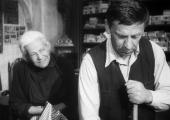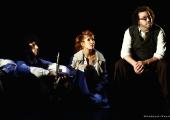As alternative facts go, few are as grievous as the assertion that the Holocaust didn't happen. That's the claim on which the British historian (I use that word advisedly) David Irving has staked an entire career. Its day in court provides sufficient fuel to power the new film Denial, even when the creative team don't always seem to be giving the charged material their best shot.
I exempt from that charge a first-rate cast in which a lips-pursed, blazing-eyed Timothy Spall excels yet again, this time playing Irving. And the stakes posed by the narrative are high enough that one is riveted throughout to a story whose outcome is no surprise: Irving famously lost a libel case that he brought in 1996 against the American academic Deborah Lipstadt (Rachel Weisz) and her UK publishers, Penguin Books. Indeed, seeing this film amidst the present climate, I doubt I'm the only one wishing that Tom Wilkinson's indefatigably incisive Richard Rampton QC might be put to work combating several leading politicians in Ms Lipstadt's modern-day America. 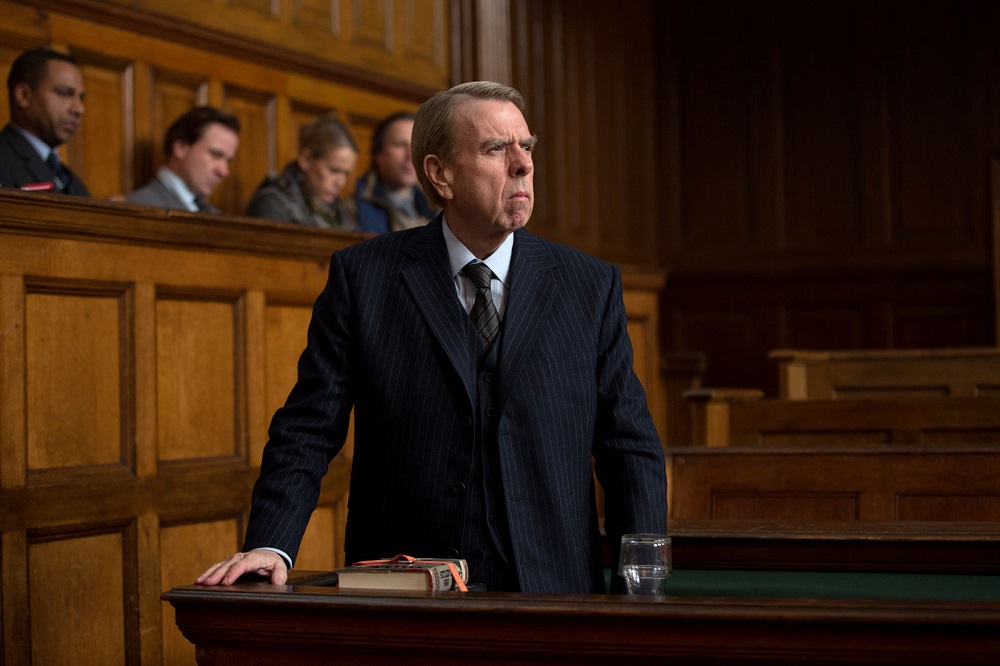 The film introduces its central sparring couple at a lecture Stateside, where Emory University professor Lipstadt is heckled from the floor while giving a talk for her latest book by the unrepentant gadfly that is Irving, Waving $1000 by way of provocation, Irving proceeeds to deploy both his age and experience – and the fact that he is English – to challenge Lipstadt (and anyone else) to prove that the Nazis did in fact gas Jews at Auschwitz. From there, Irving ramps up his needling to pursue Lipstadt for libel in court, where she is quite rightly astonished to discover that in Britain she will be presumed guilty unless proven otherwise; America's vaunted presumption of innocence is nowhere to be found.
The film introduces its central sparring couple at a lecture Stateside, where Emory University professor Lipstadt is heckled from the floor while giving a talk for her latest book by the unrepentant gadfly that is Irving, Waving $1000 by way of provocation, Irving proceeeds to deploy both his age and experience – and the fact that he is English – to challenge Lipstadt (and anyone else) to prove that the Nazis did in fact gas Jews at Auschwitz. From there, Irving ramps up his needling to pursue Lipstadt for libel in court, where she is quite rightly astonished to discover that in Britain she will be presumed guilty unless proven otherwise; America's vaunted presumption of innocence is nowhere to be found.
Lipstadt's dismay leads her to that firebrand solicitor Anthony Julius (Andrew Scott, smiling only when totally necessary), whose CV includes handling "the Diana thing" – which David Hare's surprisingly laboured screenplay then goes to some lengths to explain. Julius, in turn, leads Lipstadt on to the barrister, Rampton, who insists on an exhaustive and first-hand tour of Auschwitz (pictured above) that makes for certainly the most visually heart-stopping section of the film. The soundtrack goes silent as Haris Zambarloukos's roaming camera lets the baleful imagery speak for itself.
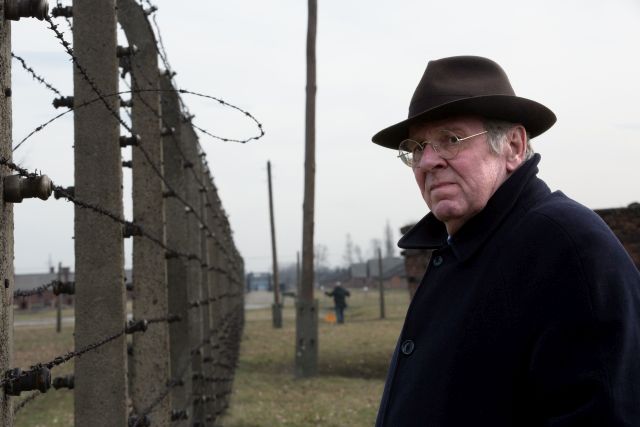 Elsewhere, Hare and director Mick Jackson (The Bodyguard) take a largely by-the-book approach, as if perhaps to resist the emotionally incendiary nature of what is on view. The script is full of "you must be" identifiers that seem like the lazy way out, and one feels slightly for Harriet Walter, who is forced to embody the entire community of Holocaust survivors that Lipstadt wants brought before the judge (Alex Jennings, suitably imposing), though her legal counsel argue otherwise. The Anglo-American differences are fairly ham-fistedly dealt with – Lipstadt jogs as incessantly as Rampton drinks fine red wine – and I stifled a laugh at the visual emphasis placed on a particular piece of London statuary which would have been far better left on the cutting room floor.
Elsewhere, Hare and director Mick Jackson (The Bodyguard) take a largely by-the-book approach, as if perhaps to resist the emotionally incendiary nature of what is on view. The script is full of "you must be" identifiers that seem like the lazy way out, and one feels slightly for Harriet Walter, who is forced to embody the entire community of Holocaust survivors that Lipstadt wants brought before the judge (Alex Jennings, suitably imposing), though her legal counsel argue otherwise. The Anglo-American differences are fairly ham-fistedly dealt with – Lipstadt jogs as incessantly as Rampton drinks fine red wine – and I stifled a laugh at the visual emphasis placed on a particular piece of London statuary which would have been far better left on the cutting room floor.
Still, Hare has always provided catnip for actors (Weisz led a recent New York revival of his 1978 play Plenty), and they more than rise to the challenge here, Weisz giving it her Sally Field-style gusto-driven best, notwithstanding a Queens accent that might as well exist in inverted commas. The men are all terrific, ranging from British theatre regulars like Elliot Levey and Pip Carter in smallish roles to the trifecta of Scott, Spall, and Wilkinson: the last-named a Mozart-loving paragon of integrity who instructs Lipstadt on the appeal of black pudding (yuk!).
Indeed, listening to Wilkinson hold forth on the depredations of prejudice and cowardice sends the mind on a mental march, the likes of which all too many men and women at the moment in Washington would do well to take on board.
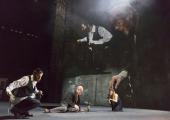

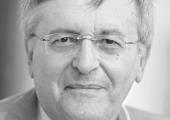
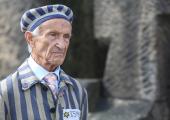
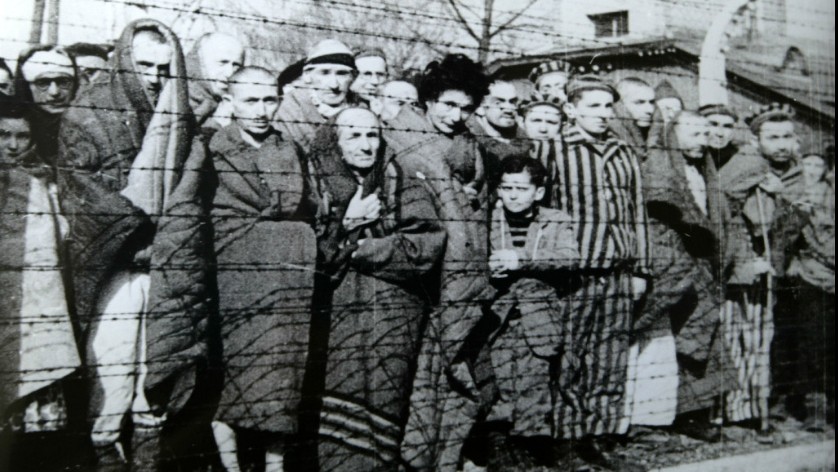 Roman Ferber, the youngest survivor on Schindler's list, gives a very vivid account of losing his father and brother. We meet him as a soft-spoken man living in America; he shows us images from the liberation of Auschwitz in 1945. Ferber holds up
Roman Ferber, the youngest survivor on Schindler's list, gives a very vivid account of losing his father and brother. We meet him as a soft-spoken man living in America; he shows us images from the liberation of Auschwitz in 1945. Ferber holds up 
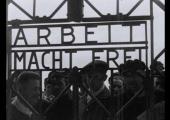
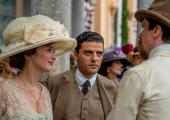
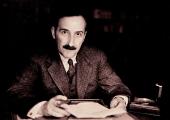

 The film introduces its central sparring couple at a lecture Stateside, where Emory University professor Lipstadt is heckled from the floor while giving a talk for her latest book by the unrepentant gadfly that is Irving, Waving $1000 by way of provocation, Irving proceeeds to deploy both his age and experience – and the fact that he is English – to challenge Lipstadt (and anyone else) to prove that the
The film introduces its central sparring couple at a lecture Stateside, where Emory University professor Lipstadt is heckled from the floor while giving a talk for her latest book by the unrepentant gadfly that is Irving, Waving $1000 by way of provocation, Irving proceeeds to deploy both his age and experience – and the fact that he is English – to challenge Lipstadt (and anyone else) to prove that the  Elsewhere, Hare and director Mick Jackson (
Elsewhere, Hare and director Mick Jackson (